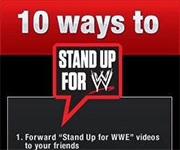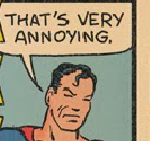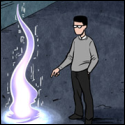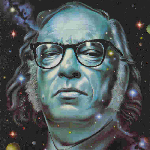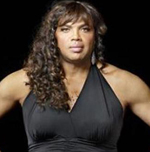|
Wikipedia says it better than I can:wiki posted:A sign language (also signed language) is a language which chiefly uses manual communication to convey meaning, as opposed to acoustically conveyed sound patterns. This can involve simultaneously combining hand shapes, orientation and movement of the hands, arms or body, and facial expressions to express a speaker's thoughts. I work as a sign language interpreter. You have probably seen people like me during significant events such as this https://www.youtube.com/watch?v=-IfHqYgGs6c , My job is slightly less high stakes being a school classroom but still comes with its own set of challenges and joys. I have three years experience interpreting sign language and am very much fluent. I've mostly worked in primary school and in special education. My job also involves working in speech therapy and general teacher aide duties. I will hopefully be gaining a certificate to work freelance soonish. So yeah ask me about sign language/interpreting/working in special ed
|
|
|
|

|
| # ? May 6, 2024 00:52 |
|
So are there hand signs that mean different things based on facial expression/body language?
|
|
|
|
Lassitude posted:So are there hand signs that mean different things based on facial expression/body language? Absolutely  Short answer Expression can be as fundamental to meaning as the shape of the hand (or the motion) Long answer Expression is commonly used to give opinion of a signed concept eg. to properly use the sign for like as in "I like to eat chocolate" you need to give a positive expression to indicate enjoyment .If you disliked the subject you give a negative expression. There are several(oh so many) special case signs that change the meaning significantly however. Signs such as "Norway" and "solid" are distinguished by showing the front teeth. In some cases the meaning can change in an abstract fashion eg. The meaning of trouble, blowing a raspberry can make the difference between "That girl is in trouble" and "That girl is trouble (not to be messed with)" .And finally there are some signs that only make sense with an expression. The sign for "just in case" only makes sense with a blown out cheek. I realize that this may be somewhat difficult to follow without images. I may make some gifs if i have time tomorrow
|
|
|
|
I only watched the YouTube for a minute, but when doing a 19 minute speech about Nelson Mandela, do you eventually come up with a shorthand for "Nelson Mandela" that is accepted to be understood by you and the audience, so you don't have to letter-by-letter spell N-e-l-s-o-n M-a-n-d-e-l-a 73 times?
|
|
|
|
photomikey posted:I only watched the YouTube for a minute, but when doing a 19 minute speech about Nelson Mandela, do you eventually come up with a shorthand for "Nelson Mandela" that is accepted to be understood by you and the audience, so you don't have to letter-by-letter spell N-e-l-s-o-n M-a-n-d-e-l-a 73 times? There is a good chance that someone as famous as Nelson Mandela has a widely known sign name in South Africa. This sign name (assuming it exsists) would be used in colloquial speech in south africa. In a formal event however his name would be fully spelt out letter by letter(finger spelling) then his sign name would be used in following mentions of Nelson Mandela. In the USA or other countries that are not so familiar with the south african dialect his name would be spelt out when was mentioned. If his name became too unwieldy or spoken too frequently then his name may be initialised to "NM" with the interpreter mouthing the full name. In specific situations the three dimensional grammar of sign language can come in handy. The interpreter may choose a space near them and designate that as "Nelson Mandela". This means that when Nelson Mandela is mentioned the interpreter will simply point to that location and it it understood that that space refers to Nelson Mandela. Sign Language has a bunch of quirks related to it's three dimensional grammar. It gets a little loopy at times but there are definitely a few specific advantages over English.
|
|
|
|
How do you deal with terms or phrases which don't have an official sign? Do you make one up? What about idioms or common sayings? Do you have any experience with other sign languages outside ASL, how do they compare? What would happen if one of your hands ended up in a cast?
|
|
|
|
Jestery posted:In specific situations the three dimensional grammar of sign language can come in handy. The interpreter may choose a space near them and designate that as "Nelson Mandela". This means that when Nelson Mandela is mentioned the interpreter will simply point to that location and it it understood that that space refers to Nelson Mandela. reality_groove posted:What would happen if one of your hands ended up in a cast?
|
|
|
|
I know that German sign language has dialects (mostly north vs south), does ASL have these too? How widespread are other sign languages than ASL in immigrant/native communities? Do sign languages get "mixed up" like spoken languages sometimes are by people who are more-or-less fluent in both (that is, if such a multilingual situation even occurs in sign languages)?
|
|
|
|
reality_groove posted:How do you deal with terms or phrases which don't have an official sign? Do you make one up? What about idioms or common sayings? Due to the nature of sign its possible to build the meaning of some things on the fly. For example (in my country's sign) there isnt a sign for "believe" it is a blend of "think-hold" Several signs are like this Believe = think - hold Janitor = use - person (it sounds better in sign) Rape = attack - gently caress This philosophy can be used to create a sign that will work for the interpreting session. If the sign works well it may end up being adopted. I made the sign at my workplace for screen mirror and now it is used and accepted. If there just isnt a good sign that can be made on the fly, then fingerspelling the word is a perfectly acceptable approach. I grew up in Papua New Guinea and grew up using English and their Pidgin english and am currently learning Spanish. Sign Language is very blunt. You don't dance arround an issue, words like plump and rotund or large boned dont exist. You just say fat. Untill recently the sign for aboriginal person was literally "black-face". This wasn't considered rascist, just the Deaf view was just " their face is black what else am i going to call them???" some proud Deaf people still use that sign and see new signs as a corruption of their culture. That said, the new sign for aboriginal literally translates to "boomerang catcher" so take it with a grain. Sign language seems to have a lacking vocabulary for overarching concepts. For example: in the context of probability .signs exist for "good chance(of happening)" , "bad chance(of happening)" but lacks a clear Sign for chance as a concept. Also discussing certain concepts is cluncky nigh on impossible. the same sign is used for real, honest,true,definate,certain and relieble. Thats not saying it is a flaw just that you cant discuss high philosophy when honest is synonymous with real. Re: arm in a cast ,it would be analogous to an verbal interpreter having extensive dental work. I dont think you could be effective as an interpreter. You could have a chat over coffee but nothing finer details will be lost.
|
|
|
|
System Metternich posted:I know that German sign language has dialects (mostly north vs south), does ASL have these too? How widespread are other sign languages than ASL in immigrant/native communities? Do sign languages get "mixed up" like spoken languages sometimes are by people who are more-or-less fluent in both (that is, if such a multilingual situation even occurs in sign languages)? Im an ausgoon and our sign language(Auslan) has very distinct dialects you can pick what state someone is from, what city and sometimes even which school they went too. This sounds a little confusing but not a giant deal in practice
|
|
|
|
I have a friend who is in school for this job and was so happy the day she was given her sign name. Please describe yours?
|
|
|
|
My sign name roughly translates to "jester hat" When I was in my blunder years i would wear a jester hat everywhere to peacock ( I stress that I am past this). I became known as jester hat. Its now a slight embassment but its a little funny to be inadvertently reminded of this cringey part of my teenage life by 9 year old children every day. If you cup your right hand into a capital C and draw out three points of a medieval jester hat from right to left on your forehead. Jester hat for reference http://www.shivaexperience.co.uk/images/800/600/1167.jpg
|
|
|
|
Ohhhh man that's good stuff.
|
|
|
|
That's fantastic. Do people ever change their sign name, and have you ever considered it?
|
|
|
|
Yeah adding on to that - if you're born into Deaf culture are you stuck with some vague description given by your parents at birth or does that all wait/change until you get some actual personality later in life? Basically please explain everything about the politics of sign names.
|
|
|
|
Sign names are a way to shorten a name. They also represent acceptance into the Deaf community. Oftentimes they use the ASL one handed alphabet as a basis for their name. For example if your name was Bethany, your sign name may include the handshape for "B" in some capacity. Other times the name is an effort to sum up some element of the person. (eg my jester hat sign name). It is notable that while I am an aussie we make use of the ASL alphabet for several signs and sign names. I have heard of families who use a linking element to show their family bond. This could be using the same initialisism, But in a different location on the body. This is an example of the 3d grammar. This system allows for the "surname" and "first name" to be seamlessly blended into one sign. Sign names are given to you by a culturally strong deaf person. Giving yourself a sign name is a major social faux pas. When you receive a sign name you can reject it if you dont like it. Or later on if it no longer suits. I know several people who used to be chain smokers and they rejected their smoking based sign name when they quit smoking. Occasionally sign names transcend the person who they originally named. Here in Australia one of our capital cities (Adelaide) has a sign name( poken your chin with two fingers). The city's sign name originally began as a Deaf elder's sign name. He became quite popular and eventually after his death his sign name became Adelaide's sign name. I'm moving to a new location for work and Im considering rejecting my old name. Its just getting a bit old and im not some dumb teenager anymore. My current one feels pretty good though so it likely wont get changed.
|
|
|
|
So obviously here there's been some discussion about allowing deaf people to serve as jurors. (Backstory: our High Court recently heard a case from Queensland because their law said that deaf people can't serve as jurors because you're only allowed a certain number of people in the jury room, and an interpreter would be one more. A deaf woman challenged the laws, but the High Court found they were Constitutionally valid, but could be changed by QLD.) I think everyone will agree that discrimination is bad, but given some deficiencies in Auslan (E.g. the high philosophy comment from before), do you think it's possible that there could be some issues of nuance being lost which could affect a case? Also re: race chat, I'm hearing but my high school was merged with the deaf high school, so we had deaf kids in all our classes and most of us could understand enough Auslan to get by. The deaf kids were some of the most racist by far, especially to Asians (although in fairness I'm totally willing to concede that could just be Perth and maybe it was just confirmation bias.)
|
|
|
|
Whitlam posted:So obviously here there's been some discussion about allowing deaf people to serve as jurors. (Backstory: our High Court recently heard a case from Queensland because their law said that deaf people can't serve as jurors because you're only allowed a certain number of people in the jury room, and an interpreter would be one more. A deaf woman challenged the laws, but the High Court found they were Constitutionally valid, but could be changed by QLD.) Re:nuance I don't immediately disagree with the judge. When you are going between languages you will lose something, its just the nature of language being a function of culture. So in that respect i can definitely sympathise with the judge that he just might havr to make that call Being in the Deaf culture though and being an interpreter I personally don't think there would be a issue in practice. In the philosophy example I gave earlier there is a big difference between debating the nature of reality and debating when something occured or amounts of money. Re:rascism The Deaf tend to exsist in their own little micro-communities it take a while for new ideas to penetrate these social barriers. Also if you add social alienation into the mix you can get some really weird opinions *. A lot of Deaf are proud and dont want to change or are unable ,so it makes sense that rascist ideals can continue. In your case that might just be confirmation bias though *i have met a deaf lady who believes there is a global campaign against the deaf. Apparently deaf never get featured on television because Murdoch owns cochlear implant companies and he wants to sell more implants Edit: further thoughts about the Deaf juror. Its not that Auslan is deficient. All languages have quirks. In english you can interpret one sentence so many different ways based on tone of voice and syllable stressing. I think the issue is more that what is being expressed is being filtered through two linguistic "seives" so to speak. So you get double the narrowing of expression without adding anything more Jestery fucked around with this message at 02:30 on Oct 28, 2016 |
|
|
|
In terms of things like money, I completely agree with you, but I was thinking more along the lines of difficulties with verbal evidence or testimony - someone saying "I'm going to kill you" for instance can be said in a lot of different ways, or if you had a recording of a fight with multiple people yelling at once, where you'd either have to get a transcript or sign multiple times. I totally get your point about how isolation can create strange ideas or attitudes within any community. I think that was part of the reason for merging our schools (aside from money). It'd be great if more Australians learnt it, especially if you work in retail or hospitality. It certainly came in handy when I was working in those areas.
|
|
|
|
With the whole argument its not as clunky as you may think. Sure the phase "im going to kill you" can be said a bunch on different ways ; but in the case it would only have been said the one way and that is the way the interpreter would sign it. How well that message get passed through is up to the skill of the interpreter. Ideally a courtroom should be an ordered place with clear and easy to follow lines of speech
|
|
|
|
any bullshit like this happening on your wretched little island? http://www.mediaite.com/online/deaf-child-forced-to-change-gun-like-signing-name-not-actually-forced-to-change-name/ edit: how did you get into this? I was a Spanish interpreter for a while... ladron fucked around with this message at 12:11 on Oct 29, 2016 |
|
|
|
ladron posted:any bullshit like this happening on your wretched little island? Nothing like that at my work, but honestly i could see it happening. I used to work retail and had a bunch of deaf customers. I learnt enough to do pleasantries and i pick up languages like bad habits so becoming an interpreter just made sense. I did a year of study and was head of the class. And been an interp ever since
|
|
|
|
Jestery posted:With the whole argument its not as clunky as you may think. Sure the phase "im going to kill you" can be said a bunch on different ways ; but in the case it would only have been said the one way and that is the way the interpreter would sign it. How well that message get passed through is up to the skill of the interpreter. I agree in some cases, meaning and tone can be very obvious, but I disagree that there's one way to interpret things - a lot of cases come down to individual interpretation of evidence, with twelve people hearing one sentence and interpreting it twelve different ways. Things like tone or intent can be entirely subjective, so I'm curious about how you'd be able to objectively convey that, I guess is my question. And yeah ideally courtrooms have calm and measured discussion, but evidence isn't always (like when it's audio evidence of several people yelling at once), and the jury room definitely isn't always, so I'm still curious at how you'd go about dealing with that. I guess with evidence you could provide a transcript, but with jury room discussions getting heated it'd be way more difficult to deal with other than just asking people to not shout over each other. Sorry if my questions are coming off hostile, it's definitely not my intent if they are. I'm just a (presuming I pass all my exams) final year law student with a particular interest in criminal law and the practicalities of bringing in deaf jurors (although if you and others who know far more than me on the topic say it's cool and issues can be dealt with, then great, bring it on as far as I'm concerned). I looked it up because I was curious, and apparently blind people are technically allowed to serve (as in, there's no blanket ban), but they're usually, but not always, excluded. I find that interesting, because I'm sure there'd be similar issues with having blind jurors, although if they can find solutions for that, surely they should be able to find solutions for deaf jurors.
|
|
|
|
That's (part of) why in Canada every accused has the right to lawyers, judge, and jury who speak his official language of choice: the Official Languages Act gives everyone the right to be understood directly in their official language of choice. If you are accused of a crime and your mother tongue isn't an official language, you get an interpreter provided by the court. Deaf Canadians are usually automatically excused from jury duty for that reason. The Canadian Association for the Deaf has been campaigning for ages to have ASL and LSQ (the sign languages used in English and French Canada, respectively) designated official languages; if they were successful, in theory a deaf person accused of a federal offence could require that the judge, lawyers on both sides, and all jurors be fluent in LSQ. (Which is probably one of the reasons that the feds are unlikely to grant that status, since there are I think only about 5000 speakers of LSQ in Canada.)
|
|
|
|
Whitlam posted:I agree in some cases, meaning and tone can be very obvious, but I disagree that there's one way to interpret things - a lot of cases come down to individual interpretation of evidence, with twelve people hearing one sentence and interpreting it twelve different ways. Things like tone or intent can be entirely subjective, so I'm curious about how you'd be able to objectively convey that, I guess is my question. And yeah ideally courtrooms have calm and measured discussion, but evidence isn't always (like when it's audio evidence of several people yelling at once), and the jury room definitely isn't always, so I'm still curious at how you'd go about dealing with that. I guess with evidence you could provide a transcript, but with jury room discussions getting heated it'd be way more difficult to deal with other than just asking people to not shout over each other. I feel as if the unspoken mentality is that if a hearing person can't meaningfully understand two people arguing over the top of people why does it matter. Just in the Deaf way its a bit more blunt about it. Thr interpreter can also work both ways ie if things are starting to get a little heated the interpreter can ,via or on behalf, ask that everyone stops talking over each other. If asking people to stop talking over each other fails then meaning and integrity of transmisson has been lost at the source.The idea being that a hearing person would not to be able to meaningfully understand many people talking at once. Your questions arent hostile at all and it is an interesting question that I personally cant come to a full conclusion about so discussion is great  Sorry if i am a little unweildy in my typing i have just woken up
|
|
|
|
Jestery posted:In specific situations the three dimensional grammar of sign language can come in handy. The interpreter may choose a space near them and designate that as "Nelson Mandela". This means that when Nelson Mandela is mentioned the interpreter will simply point to that location and it it understood that that space refers to Nelson Mandela.
|
|
|
|
lllllllllllllllllll posted:This is really cool.
|
|
|
|
How long does it take for the average person to pick up Auslan well enough to interpret? Or I guess a better question is how many hours/how intensive was your course? I've studied a couple of languages and I can't imagine going from 0 to being able to interpret professionally in the span of a year, especially without being 100% immersed in the language. Is the difference that Deaf people all(?) know English as well and you can finger spell any words that you don't know? Or is part of it knowing enough to be able to make up intelligible signs for things on the fly?
|
|
|
|
Organza Quiz posted:How long does it take for the average person to pick up Auslan well enough to interpret? Or I guess a better question is how many hours/how intensive was your course? I've studied a couple of languages and I can't imagine going from 0 to being able to interpret professionally in the span of a year, especially without being 100% immersed in the language. Is the difference that Deaf people all(?) know English as well and you can finger spell any words that you don't know? Or is part of it knowing enough to be able to make up intelligible signs for things on the fly? Auslan has a rather small ( compared to English) vocabulary. a lot of its complexity comes from the 3D grammar and learning enough special case signs*. Also things in Deaf culture** like how to interupt conversations and being aware of light sources. Also your brain needs some time to rewire the visual part to the language part which is...weird. To answer your questions though, a year isnt unreasonable to start attempting interpreting. I am not a top level courtroom interpreter but i am getting there. You will be somewhat sketchy but you dont learn unless you fall down. I grew up bilingual so my brain was wired to im likely not the best to ask for normal language aquisition. My course was about 10 hours a week for a year  . i have been told it is polite to assume the average Deaf person has an english level of a 10-12 year old native english speaker. So they usually have an understanding but complex grammar and specific words may cause confusion . i have been told it is polite to assume the average Deaf person has an english level of a 10-12 year old native english speaker. So they usually have an understanding but complex grammar and specific words may cause confusion *some things like statistics are genuinely hard to conceptualize. Eg: ENGLISH: 3 out of 10 dogs will eat a meat pie in their lifetime. AUSLAN: 10 Dogs (general case), 3 eat meat pie (general case) will will. It sounds clunky but works in context. **something I am acutely aware of now is the position of light sources and the sun. Since i am rather tall people look up at me when I'm signing so its polite if i put them between me and the light source so their eyes dont get strained.i work with Deaf children so that goes double for them. Jestery fucked around with this message at 12:00 on Oct 30, 2016 |
|
|
|
Jestery posted:
Wow that's weird. To be accredited as an ASL interpreter here (Canada) it's a 3 year full time college course, and to get in you need to already be partially fluent in ASL, pass an interview in ASL, and have a letter of recommendation from a Deaf person. Then the coursework itself is brutal and intense.
|
|
|
|
As i said, I am not top level.The equivalent of what you are describing here in Australia is "passing the NAATI" a rather difficult ,proficiency based test. Far less stringent buy the same idea, the test scares me and i am yet to attempt it
|
|
|
|
Have your interpreting skills ever gotten you laid? Or at least hooked up with someone who would otherwise be out of your league?
|
|
|
|
ladron posted:Have your interpreting skills ever gotten you laid? Or at least hooked up with someone who would otherwise be out of your league? Soooorta, I was tricked into spending the night with a gay Deaf guy once. He ended up loudly masturbating next to me with his hearing aids out. The awkwarder thing about it is that its considered polite to inform a Deaf person when there is a noise (eg helicopter or jack hammer) so i was put in an situation where the polite thing was to inform him that masturbating does indeed make noise. I did not as I was 18, young and dumb with no spine. Ive had a couple lesbians express interest when im with my signing friends at bars. Thry come up to me and are like "ARE YOU DEAF?!" its pretty funny Im not really hookup kind of of person but some women do seem drawn to it. It is one of those skill that only tv characters seem to have so it definitely sets you apart from a crowd. Working in special ed seems to do that too
|
|
|
|
Scudworth posted:Wow that's weird. Sorry i should explain better. Generally the progression of no signing skill to full accreditation goes something like this Take a signing class and do well Become a primary school interpreter Move to a high school Take a diploma course and then take an accreditation exam This means your skills become more developed as the people you are signing for need better interpreters. It makes something resembling sense. But the system here in Australia needs some serious work. Weirdly enough due to the large( hundreds) numbers of indigenous Australian languages getting Auslan to be recognized as an official language is difficult as once you recognize one indigenous language officially(auslan) it opens the door to every other native indigenous language being officially recognized which would bind the country in red/white tape.
|
|
|
|
Do you think it would be a good thing if sign languages were more similar and standardized around the world? I was surprised to learn that American Sign Language and British Sign Language are essentially different languages and that fluency in one does not help much with the other. Is Auslan more similar to BSL than ASL? I understand that languages are fluid and don't conform to human whims but it seems like it would be helpful to the global deaf community if there was more commonality. I know very little about the subject but I read that braille has characters for various latin-script languages and perhaps pinyin for some of the Asian character-based languages. It makes me wonder if sign language could benefit from a similar system.
|
|
|
|
I'm not saying the answer is necessarily obvious, but since signed languages are just as much languages as spoken ones, and they're not really connected to spoken languages in the area (save perhaps for fingerspelling), your question is analogous to: "Do you think it would be a good thing if spoken languages were more similar and standardized around the world? I was surprised to learn that English and Dutch are essentially different languages and that fluency in one does not help much with the other...I understand that languages are fluid and don't conform to human whims but it seems like it would be helpful to the global speaking community if there was more commonality." Braille is a separate sort of discussion since it's more or less an alternate written representation of a spoken language. In China they use pinyin romanizations, but there's minimal benefit to that "standardization" (and an English speaker wouldn't be able to sound out pinyin without training), to the point where Taiwan generally uses a different phonetic system called bopomofo, which is not tied to the roman alphabet at all.
|
|
|
|
dirby posted:I was surprised to learn that English and Dutch are essentially different languages and that fluency in one does not help much with the other... I think American English and British English are slightly more mutually intelligible than English and Dutch
|
|
|
|
I think the point that dirby was making was in part that sign languages aren't really connected to the spoken languages in their region, so it doesn't follow that American and British sign languages would be mutually intelligible because American and British spoken English are.
|
|
|
|
Asimov posted:Do you think it would be a good thing if sign languages were more similar and standardized around the world? I was surprised to learn that American Sign Language and British Sign Language are essentially different languages and that fluency in one does not help much with the other. Is Auslan more similar to BSL than ASL? I understand that languages are fluid and don't conform to human whims but it seems like it would be helpful to the global deaf community if there was more commonality. There is an interesting topic, So yeah i would kind like it if there was a universal language that was mutually understood. But if we all seriously wanted and believed it we would all be speaking Esperanto or lojban. One of the reasons language is super cool is that it is synonymous with culture concepts exsist in Japanese that as native English speaker I struggle to grasp. So if we all spoke one language we would lose expression of concepts like " wabu sabi " https://en.wikipedia.org/wiki/Wabi-sabi?wprov=sfla1 Or "The wisdom of the staircase " https://en.wikipedia.org/wiki/L%27esprit_de_l%27escalier?wprov=sfla1 So mutual understanding good, Expressing specific concepts better IMO. RE:signed languages tho While yes ASL and BSL are different the grounding of the languages is very similar due to the inherent bluntness in signed languages. I read about a study where two people who spoke different languages were put in a room and informed they had to do teamwork exercises thst required mutual understanding and communication. It took approximately a week or two before a pidgin language had been made. This experiment was done with two Deaf people from different countries eg: China and Spain. What took oral language users weeks took the two deaf people a matter of hours. It seems sign language is easily modified to suit situations and has common ground based on the human experience ( facial expression and gestures ), rather than cultural touchstones. There is a " universal sign language " but it is very lacking. And requires use of abstraction. Concepts such as counting are blunt and basic to a fault, with things like tense and subtleties falling to the wayside. Auslan is about 50% BSL, 20% Irish Sign ,20% ASL and 10% our own thing. (100% concentrated power of will) This is due to Australia being colonised by the Brits way back in the day. I can understand BSL well enough to have a conversation. And could probably move to England and work as an interpreter without much hassle. I couldn't do that with American Sign. Eg: I can watch this video without subtitles (its a cracker about a Deaf pornstar, if you have 15 minutes and need a laugh ,have a watch) https://youtu.be/KOSiaOmLoh0 As a general rule of thumb, Western sign languages are French or British based. If it is a Commonwealth country there is a good chance their sign language is British based. If it is not a Commonwealth country it is French based. Jestery fucked around with this message at 13:48 on Nov 3, 2016 |
|
|
|

|
| # ? May 6, 2024 00:52 |
|
Dogfish posted:I think the point that dirby was making was in part that sign languages aren't really connected to the spoken languages in their region, so it doesn't follow that American and British sign languages would be mutually intelligible because American and British spoken English are. The reason American sign is different to British sign is partially due to the declaration of independence. America started getting serious about teaching Deaf people signing a little while after it declared independence. I believe England was still a little salty about losing America and didnt send any BSL teachers. So you yanks contacted the French and they sent over a bunch of teachers. So that is why ASL is different to BSL. Fuckin politics
|
|
|




